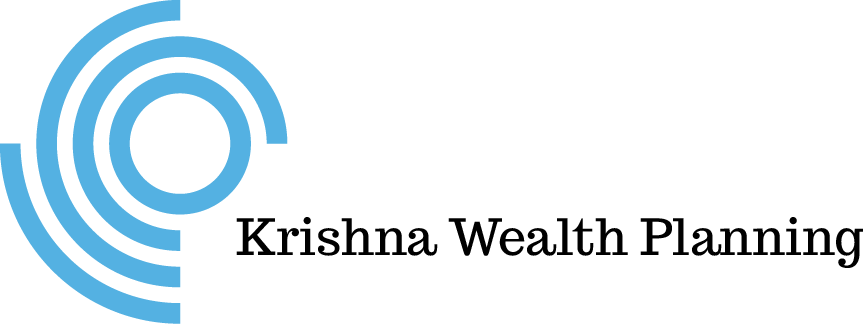“Financial plans are worthless, but the process of financial planning is vital.”
– Carl Richards (The Behavior Gap)
Are you a goal setter? Do you set and track goals in either your personal or work life? If so, you’re not alone. Personally, I’m not a regular goal setter. This might sound surprising coming from a financial planner.
I find that goals can be helpful, but they also have some serious limitations. However, having the right systems in place in your life can be under appreciated. In this piece, we look at the benefits of having a systems-based approach and how that can be applied to your financial planning.
Financial Planning Goals vs Systems
Financial planning is a process and not a 100-page document you might refer to as the “plan”. The plan may be worthless, per the provocative opening quote from Carl Richards, but the process is invaluable.
Goals are part of this process and are helpful to set a general direction. I can always produce the 100-page document for clients that want to read it. But the challenge (and fun in my view) comes from adapting and making course corrections. To do that well, systems are necessary.
The table below lists a few common financial goals in the left column and what corresponding systems might look like in the right. I’ve purposely stated the goals vaguely here. If you’re goals driven, you may want to make them more effective by adding specificity and time constraints.
|
Goal(s) |
System(s) |
|
Retire, become financially independent |
Cash flow/budget plan, savings policy statement, savings automation system |
|
Get a promotion at work |
Daily deep work study habit to build a specific skill |
|
Don’t outlive my money |
Retirement plan with Monte Carlo model, dynamic withdrawal strategy |
|
Pay less taxes |
Tax projection system to understand impact of earning or deferring income, plan to increase tax-free retirement assets |
|
Payoff and optimize my debt |
Debt snowball system, build debt capacity |
|
Send my children to college |
Utilize 529 college savings plans, build late-state college planning process |
|
Protect my family |
Life insurance needs analysis, estate distribution plan |
|
Get organized with my finances |
Financial planning software with account aggregation |
The Downside and Paradox of Goals
Having goals in life can be powerful, especially if they are deeply aligned with your values. But there are some downsides to consider.
For one, it’s easy to pick the wrong goal. Have you ever picked a goal simply because you’ve seen another person have or achieve something interesting? We take cues from our environment and social networks. It can take some maturity to recognize if a goal is something you really want, a true intention based on what matters to you.
Another risk is focusing too much on goals. If you’re defining a goal as some objective you want to accomplish in the future, then it’s possible you’re in a state of continuous failure until that goal is achieved. That could turn into a possible permanent failure if the goal is never achieved.
Let’s say you do achieve the goal. What comes next? Do you pat yourself on the back and move on to the next goal? Let’s put the question another way. Can you focus on goals and still feel fulfillment in the immediate present, right here and right now?
Yet we all seem to need goals in life, right? You might need something to move you in the right direction. Goals can provide energy and motivation. They can give you a target to apply your focus while living in a world of uncertainty.
I’m willing to acknowledge there’s a bit of paradox to goals.
Systems and Habits go Together
It’s interesting the way the author and cartoonist Scott Adams puts it in his delightful book How to Fail at Almost Everything and Still Win Big. Adams goes as far as saying “goals are for losers.” He encourages you to become a systems-oriented person instead. Why?
Adams defines a system as something you do on a regular basis that increases your odds of happiness in the long run. If you do something every day, it’s a system. If you’re waiting to achieve it someday in the future, it’s a goal.
In this manner, you could also think of a system as a set of habits you do regularly. It’s amazing what can happen if you make increment progress daily with good habits. For more that, I’d encourage you to check out Atomic Habits by James Clear.
This habits viewpoint would be a non-traditional way to define a system. But if you have an organized and established procedure for doing something, it works for this discussion. It’s less about the future outcome and more about how you’re doing it.
As a former engineer, I’m inclined to think in terms of systems and processes. But can that approach be better than goals in all aspects of life? I believe the answer is yes at least in financial planning domain. I’m still experimenting to find the answer in other areas like health, family and spirituality.
Be Flexible with Your Financial Planning Goals
Back to the opening quote of this blog from Carl Richards, who is himself a financial planner. I agree that financial plans can be “worthless” depending on your interpretation. To understand why, look at some of the assumptions that typically go into making a financial plan.
- Retirement (or Semi-Retirement) Ages
- Life Expectancy
- Current and Future Savings Rate
- Future Wage or Business Growth Rate
- Current (and Future Desired) Spending and Lifestyle
- Future Investment Returns
- Future Inflation
- Future Tax Rates
You might have noticed that the word “future” is frequently used in these assumptions. We can and should make educated guesses about the future, but they are still guesses.
We should make reasonable financial planning assumptions, but the odds of getting them all right over multiple years is essentially zero. One thing we can know with reasonably certainty is that some of these assumptions will change.
Realize that many financial planning assumptions are out of your control. But don’t you have control over your own financial goals and aren’t those goals an important part of a financial plan? The answer to both is yes.
However, life changes and your goals are bound to change as well. Were your goals from ten years ago the same as they are today? I’m guessing probably not. That’s why it’s essential to build flexibility in a financial plan.
Find Systems that Work for You
Human beings crave certainty. But we live in an uncertain world. Conquering uncertainty may be one reason you choose to adopt goals in the first place. If you’re goal-oriented person, I’m not here to tell you to abandon goals.
But consider a systems-based approach. A good system adapts well to uncertainty. You try something and see how the world responds to it. That feedback can help you determine whether to keep going or try a new direction.
Consider if failing to achieve a goal will make you feel miserable. Failure when executing a system may not feel great, but it may provide more valuable and actionable information.
OK, we can get into some semantic trouble when pitting goals and systems against each other. Goals may require systems and systems may require goals. Let’s save that debate for another day.
Maybe we can all agree on this. For success in financial planning and life, you need good systems to leverage your goals. When I’m not too busy working on a specific client’s problem, I like to continue building and improving the system of delivering financial advice. It’s an ongoing and rewarding experience. I hope this inspires you to find and implement systems that serve your life well!
If you have comments or questions on this piece, please drop me a line at: [email protected]
References
- https://krishnawealth.com/how-80-percent-of-our-retirement-assets-became-tax-free/
- https://www.kitces.com/blog/policy-based-financial-planning-and-decision-rule-policy-statements/
- https://www.calnewport.com/books/deep-work/
- https://krishnawealth.com/two-ways-of-quantifying-your-retirement-readiness/
- https://www.ramseysolutions.com/debt/how-the-debt-snowball-method-works
- https://krishnawealth.com/the-value-of-having-debt-capacity/
- https://krishnawealth.com/enhancing-your-college-savings-529-plan-experience/
- https://krishnawealth.com/improving-your-college-investment-process/
- https://krishnawealth.com/five-questions-ive-been-asked-recently-about-life-insurance/
- https://www.amazon.com/How-Fail-Almost-Everything-Still/dp/1591846919/ref=tmm_hrd_swatch_0?_encoding=UTF8&qid=&sr=
- https://www.amazon.com/Atomic-Habits-Proven-Build-Break/dp/0735211299
The information on this site is provided “AS IS” and without warranties of any kind either express or implied. To the fullest extent permissible pursuant to applicable laws, Krishna Wealth Planning LLC (referred to as “KWP”) disclaims all warranties, express or implied, including, but not limited to, implied warranties of merchantability, non-infringement, and suitability for a particular purpose.
KWP does not warrant that the information will be free from error. None of the information provided on this website is intended as investment, tax, accounting or legal advice, as an offer or solicitation of an offer to buy or sell, or as an endorsement of any company, security, fund, or other securities or non-securities offering. The information should not be relied upon for purposes of transacting securities or other investments. Your use of the information is at your sole risk. Under no circumstances shall KWP be liable for any direct, indirect, special or consequential damages that result from the use of, or the inability to use, the materials in this site, even if KWP or a KWP authorized representative has been advised of the possibility of such damages.
In no event shall KWP have any liability to you for damages, losses, and causes of action for accessing this site. Information on this website should not be considered a solicitation to buy, an offer to sell, or a recommendation of any security in any jurisdiction where such offer, solicitation, or recommendation would be unlawful or unauthorized.





